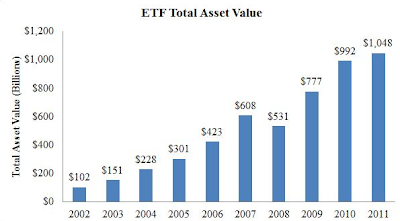
Our experts frequently write blog posts about the findings of the research we are conducting.
Credit Risk in the Municipal Bond Marketplace
What is a Synthetic ETF?
Stock Market Correlation and Portfolio Diversification
Did ARS Interest Payments Adequately Compensate Investors After the Failures?
SEC Litigation Releases: Week in Review - February 17th, 2012
Should You Cash Out Your Home Equity to Find Your Missed Fortune? Careful! A Scam Might Be On the Way
Home Equity: Changing Perspectives
SEC Litigation Releases: Week in Review - February 10th, 2012
Could Credit Rating Agencies be Held Accountable This Time?
ETFs' Asset Value is Increasing, Trading Volume Remains Stable
